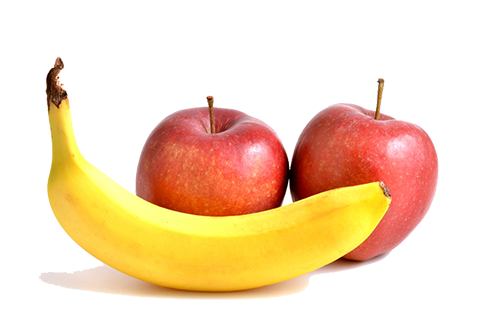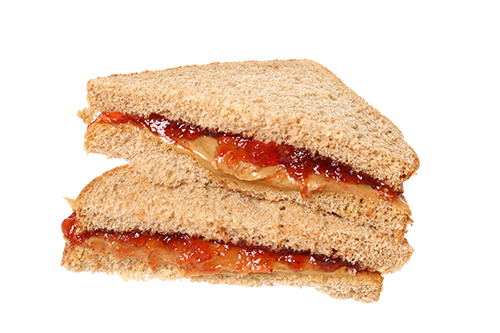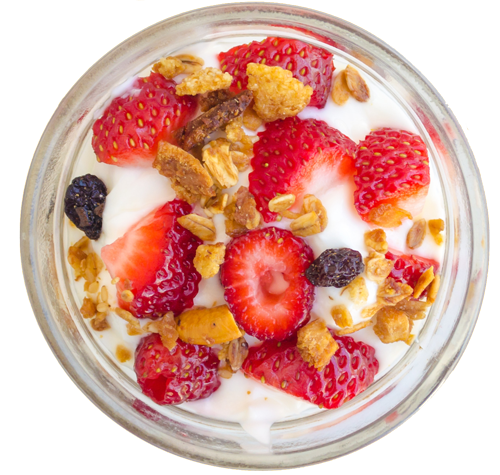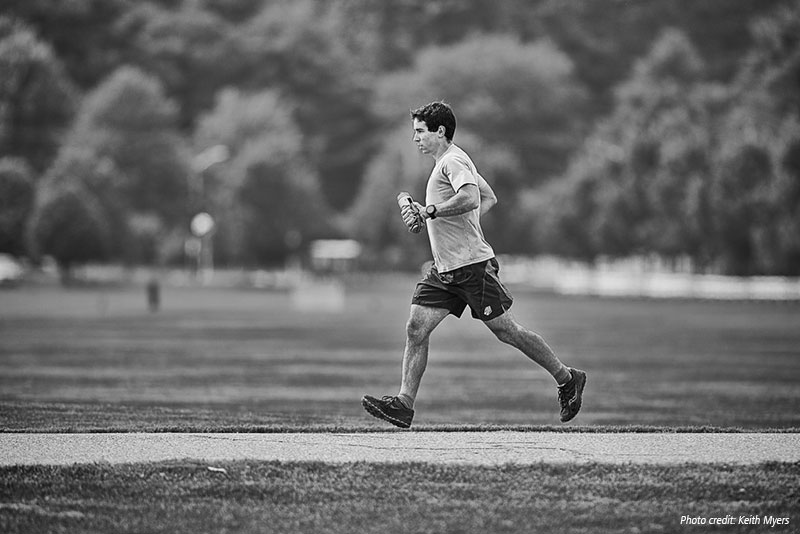
Favorite Pre-Workout Snacks
Before workouts, I go for foods that provide fast energy, and I always prefer real food over bars. Even though I’m lucky to have an iron stomach, I still make sure to get simple, easily digestible foods before workouts, just to avoid digestive issues during training sessions or competition.
THE SCIENCE: Tips for Pre-Event Eating
- Eat meals 3-4 hours before an event.
- Two to three hours between events or heats: Eat solid foods in the form of carbohydrates, as there is enough time to digest them before competition.
- One hour or less between events or heats: Stick with carbohydrates that are in liquid form, such as sports drinks or fruit.
- To avoid stomach upset, reduce the carbohydrate content of meals the closer the meals are to the event.
 Some of my go-to pre-workout snacks are:
Some of my go-to pre-workout snacks are:
- Wheat toast with butter or jam
- An apple or banana
- Leftover pasta or rice with a simple sauce
THE SCIENCE
Blood glucose, the sugar found in the blood, is the energy delivered to the working muscles and organs that allows your body to complete activity. Low blood glucose levels cause you to feel more sluggish than normal and decrease your ability to focus, which inevitably will decrease performance.
Learn more about Carbohydrates – The Master Fuel.
 Refueling During Long Workouts
Refueling During Long Workouts
As an endurance athlete, I often did three, four, and five-hour training sessions. Most of my teammates would fuel with bars, gels, chews, and sports drinks, so I was atypical in preferring real food. My go-to fuel during a workout was a PB&J sandwich. It often got squished during the workout and would be a soggy, messy, easily digestible treat when I actually ate it.
THE SCIENCE:
Consuming carbohydrates during exercise lasting longer than 60 minutes ensures that the muscles receive adequate amounts of energy, especially during the later stages of the competition or workout. This has also been found to improve performance.
 Go-to Foods for Recovery
Go-to Foods for Recovery
For cross country skiers and endurance athletes, bulk and muscle growth aren’t usually desired, but muscle recovery is definitely a priority. After workouts, I look for balanced snacks with carbohydrates, protein, and healthy fats. My go-to snack after training was granola, with plain full-fat yogurt and fresh fruit, or a sandwich with bread, meat, cheese, and lots of veggies. I also like eating leftovers from the night before as post-workout recovery food and I usually cook enough dinner to guarantee lots of leftovers!
THE SCIENCE:
To refuel muscle, eat high-carbohydrate foods within 30 minutes after exercise and then have small meals after two hours and again at four hours after the workout.
For more nutrition recommendations for athletes, check out the TrueSport Nutrition Guide.

About Noah Hoffman
What is food-first nutrition?
Every athlete wants to reach their peak performance, which often means pushing harder and longer in training and in competition. In the quest to reach their maximum potential, many athletes know that good nutrition is critical, but they may also look to the latest supplements and trendy diet regimens to give them that extra boost.
Some athletes, on the other hand, have found that a food-first approach is all they need to achieve peak performance. While some athletes may need to supplement their dietary intake because of a medical condition, many athletes can properly fuel their bodies and meet all their bodies’ needs with the right food. In the Food-First Nutrition series, Olympians, Paralympians, and elite athletes share how they maintain the strength and energy they need to compete at the highest levels of sport through a food first approach.



